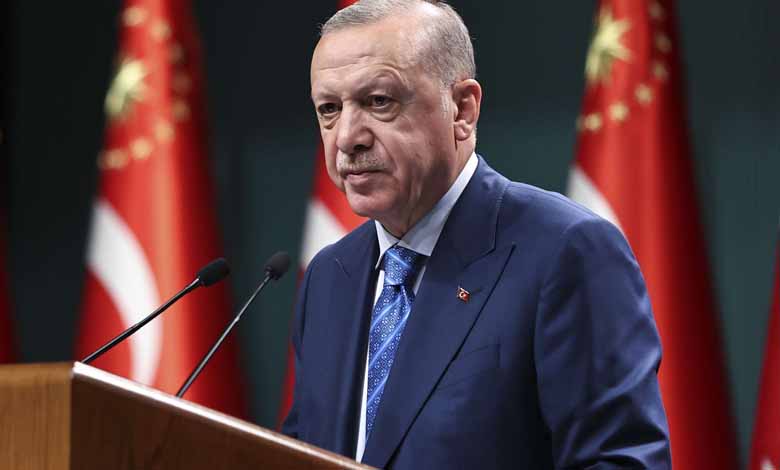Erdogan’s setbacks before elections… These are the most prominent

With the approach of the presidential elections in Turkey, the political setbacks for the Turkish President, who seeks to strengthen his team before entering the hotly contested elections that will take place next May. The most recent of these setbacks is the refusal of former Finance Minister Mehmet Şimşek to join Recep Tayyip Erdogan’s administration.
Şimşek, one of Turkey’s leading economists, said on Twitter on Tuesday that he does not plan to return to politics because of his preoccupations with financial institutions abroad, and expressed his willingness to help in his field of expertise, if necessary, following a meeting that lasted for more than an hour at the AKP headquarters in Ankara.
Mehmet Şimşek’s decision came just hours after the leader of a budding Islamist party was selected not to join the Public Alliance led by the Justice and Development Party (AKP), which includes the Nationalist Movement Party (MHP), and other parties. Erdogan’s party succeeded in securing the support of another marginal party, formed by members of the banned Hezbollah group, according to Al-hurra.
A Bloomberg report indicates that Turkish opposition candidate Kemal Kılıçdaroğlu is expected to win the support of the country’s largest unaligned political group. It predicts that the pro-Kurdish Peoples’ Democratic Party (HDP), which holds more than 10% of the electorate, will announce its support for the opposition candidate this week.
Rising inflation and dissatisfaction over the government’s response to last February’s devastating earthquake, which killed at least 48,000 people in Turkey, has left Erdogan and the AKP facing their toughest electoral challenge since they first came to power, according to Reuters.
Erdogan’s election defeat after more than two decades in power will have strong repercussions not only for the political landscape in the Middle East, but for the entire world, the news agency said.
The Bloomberg report noted that since Şimşek left the government in 2018, Turkey has depleted much of its official reserves, seen the lira fall to record lows, and inflation spiraled out of control.
Since he first took office in 2007, investors have viewed Şimşek, a former strategic analyst at Merrill Lynch, as someone well versed in financial markets, according to Bloomberg.
Some readings suggest that Kurds, who have long felt marginalized in the political scene, may play a decisive role in May’s closely contested elections, deciding whether President Recep Tayyip Erdogan will continue to rule after more than two decades in power.












